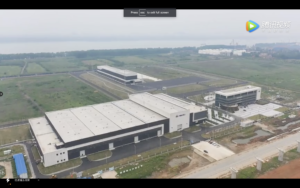
Hong Kong, 18 March 2021. – Xingyun, a Chinese state-run narrowband constellation, announced a massive RMB 2.63 billion round of funding, China Space News (中国航天报) reported, describing it as China’s largest funding round into Industrial IoT.
The funding round was led by several blue-chip investors, including ICBC Investment, China Merchant’s Capital, and Shenzhen Capital Group.
The Xingyun constellation is expected to be an enabler of CASIC’s “CASICloud” Industrial IoT business model. The company, one of China’s large, powerful SOEs, has been trying to find commercial areas into which it can expand, given the relatively inelastic nature of demand in its core vertical, namely missiles, Dongfang Hour said.
The IIoT play has been underway for some time, with CASIC having originally highlighted this as an opportunity as part of China’s somewhat defunct “Made in China 2025” initiative, Dongfang Hour said. “Moving forward, it is expected that Xingyun’s operating company, LEOBit Technologies, will continue to develop applications and user terminals for IIoT, in addition to the global constellation, to be completed around 2023.”
CASIC’s satellite factory in Wuhan (pictured) would likely manufacture the satellites.
Xingyun is expected to deploy several more satellites this year, before accelerating around the end of 2021 or into 2022. As the “Chinese version of Iridium”, Xingyun’s target customers would likely be the major Chinese SOEs that are currently using Iridium or other large SOEs that would require remote narrowband communications, Dongfang Hour said.
Dongfang Hour, as well as other Chinese media, had expected China’s broadband-focused constellations, namely Hongyan, Hongyun, and potentially Galaxy Space, to merge into a national mega-constellation for quite some time.
Last week, Bao Weimin of the CNSA and CASC formally announced the Guowang constellation, paving the way for the major state-owned broadband constellation of China.
Dongfang Hour also expected China to deploy a separate narrowband project in parallel, due to the fact that narrowband represents a separate business plan of different scale, and due to the fact that narrowband global constellations like Iridium have already been established.
The 80-satellite Xingyun, backed by Chinese SOE CASIC, emerged as the top candidate for such a project, Dongfang Hour said.
Updates on Xingyun, including a full debrief later this week, on Dongfang Hour China Aerospace/Space News Roundup.





